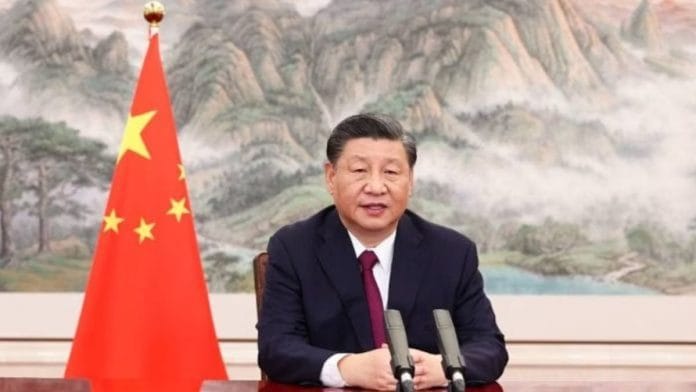The Middle East is changing rapidly, and China is poised to capitalise on the shifting dynamics—a prevailing sentiment in Chinese discourse that was reinforced after a trilateral meeting in Beijing. Framed as an effort to seek a diplomatic resolution to Iran’s nuclear issue, the high-level meeting brought together Chinese Vice Foreign Minister Ma Zhaoxu, Russian Deputy Foreign Minister Sergei Ryabkov, and Iranian Deputy Foreign Minister Kazem Gharibabadi.
Before this meeting, Iran had proposed entering a tripartite alliance with Russia and China, primarily as a countermeasure against Western sanctions. At the time, Chinese consensus leaned toward caution, urging Beijing to assess its diplomatic options carefully to avoid excessive entanglement. Chinese commentators highlighted the country’s foreign policy of non-alignment and non-confrontation, prioritising independent development over rigid alliances. Furthermore, close alignment with Iran and Russia was not seen as a ‘free lunch’ for Beijing.
But geopolitical currents have shifted in recent times. With Donald Trump reshaping global policies, and China assuming a more assertive international role, Beijing finds itself navigating increasingly uncertain waters.
A reliable partner
Chinese discourse increasingly describes China as a reliable partner, playing a constructive role in Trump’s disruptive world. The meeting reflected China’s latest diplomatic efforts to strengthen communication and coordination while creating conditions for the resumption of dialogue and negotiation. On Weibo, discussions under the hashtag #thisisChinasdiplomacy echoed this sentiment. One user remarked: “Negotiations on the Iranian nuclear issue have begun. This time, there is no US; China will lead the world.”
Cheng Jingye, president of the China Arms Control and Disarmament Association, stated that the country’s diplomatic initiatives in the Middle East—from brokering the deal between Saudi Arabia and Iran to facilitating Palestinian reconciliation—reflect its role as a permanent member of the United Nations Security Council (UNSC). He asserted that these efforts demonstrate China’s responsibility as a major power and its commitment to the Global Security Initiative. As the situation evolves, he further said, Beijing is expected to continue promoting peace, reconciliation, development, stability, and security in the Middle East.
Chinese discourse, thus, framed the Beijing meet as a necessary first step for resolving Iran’s nuclear issue. One analyst highlighted that China, Russia, and Iran engaged in direct discussions with a clear agenda, reinforcing Beijing’s continued diplomatic push to revive negotiations and maintain regional stability.
Also read: ‘All-weather friendship’ with Pakistan is increasingly becoming a liability for China
The Middle East game
The Beijing meet, as a Baidu commentator put it, was a “great power game to rearrange the Middle East chessboard.” With two UNSC permanent members backing Iran, the rules of engagement have shifted, they said. Labelling the gathering an “Iron Triangle Secret Meeting,” the commentator argued that it marked a breakthrough for Iran in circumventing US sanctions and a pivotal moment for China and Russia in reshaping Middle Eastern geopolitics.
Shen Dingli, Professor at Fudan University, contrasted Beijing’s commitment to the Iran nuclear deal with the US withdrawal, asserting that while Washington abandons agreements, China upholds its international responsibilities. Ma Xiaolin, Dean of the Mediterranean Research Institute, reinforced China’s role as a key mediator in the 2015 Iran nuclear deal, noting that the Beijing meeting both advanced discussions and highlighted China’s growing influence over Tehran.
Qin Tian of the China Institute of Modern International Relations observed that Iran, wary of negotiating under US pressure, increasingly trusts China and Russia as genuine mediators. Iran’s decision to hold talks in Beijing signals its reluctance to negotiate directly with the US and underscores its trust in China’s role as a mediator, he stressed. Qin also highlighted that China’s successful mediation between Saudi Arabia and Iran has further fuelled Tehran’s expectations that Beijing could play a crucial role in resolving its nuclear issue. However, Qiu Lishu, a Chinese analyst based in Tehran, suggested that Iran may seek security assurances from China and Russia, allowing it to maintain strategic ambiguity on its nuclear programme rather than being forced into a definitive stance.
Also read: DeepSeek is the dawn of a new world order, say the Chinese
Norm setter, agenda shaper
Iran has become a focal point of Beijing’s diplomatic push in the Middle East. In a region where the US has lost credibility, China is positioning itself as a reliable partner with a track record of mediation. For Iran, distrust of Western powers—rooted in its designation as an authoritarian regime—has made China a more attractive interlocutor. The Beijing meeting, then, serves as both a geopolitical manoeuvre and a demonstration that so-called rogue states are, in fact, willing to negotiate under China’s lead.
However, real impact will be shaped behind closed doors, where diplomatic finesse will determine outcomes. China finds mediation easier when it is not directly involved in a conflict. Yet, when managing its own disputes, Beijing often takes a more assertive approach, using active conflicts to serve strategic interests.
Despite this, China’s pivotal geopolitical role – at least in the Middle East – is being increasingly acknowledged and accepted. If this tripartite engagement evolves into a more structured mechanism, Beijing may be able to cement itself as a norm-setter, agenda-shaper, and rule-maker in global diplomacy and conflict management.
Sana Hashmi is a fellow at the Taiwan-Asia Exchange Foundation. She tweets @sanahashmi1. Views are personal.
(Edited by Zoya’s Bhatti)






